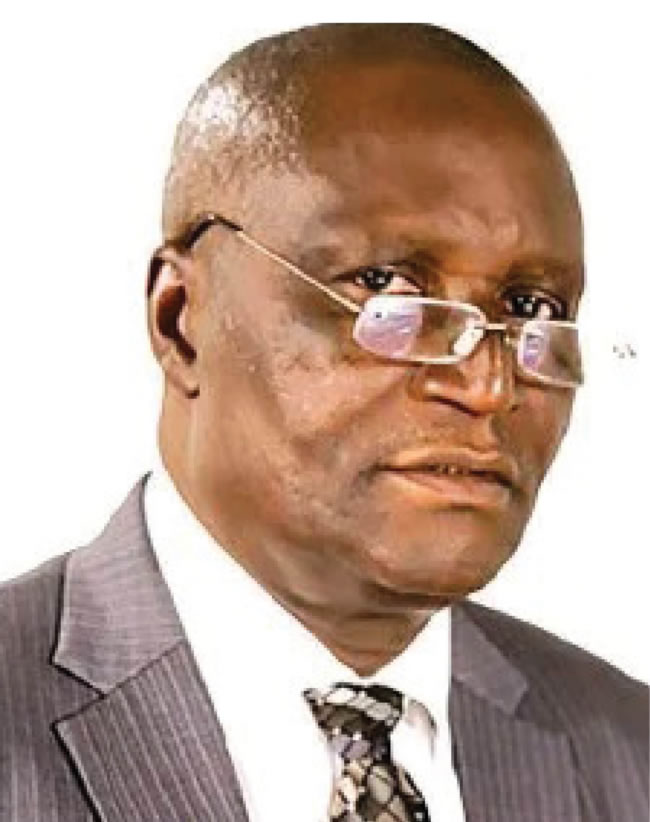Former deputy vice-chancellor of the University of Lagos (UNILAG), Professor Duro Oni, speaks with IMOLEAYO OYEDEYI, on sundry issues affecting governance, education and theatre practice in Nigeria, among others.
To improve the face of education in Nigeria, President Bola Tinubu’s administration has introduced a student loan scheme. But many people have opined that since the loan scheme has brought about an increment in the tuition of the federal universities, it will likely prevent the children of the poor from having a university education, what is your take on this?
Firstly, let me correct an impression. There is no federal university where fees are paid. If you are talking about tuition fees, then go to the private universities and you will see fees ranging from N1 million to N5 million for certain courses. All the federal government universities are charging are municipal charges. How much are you consuming for electricity, water, hotel and classroom maintenance, and others, that is all. There are no school fees. Meanwhile, all the money you are talking about is just N200,000, N150,000.
But the same people who appear to be complaining about these fees still have their children going to Nursery and Primary schools at the cost of hundreds of thousands. The government itself does not help because when an individual in the society sees some of the wastages at the federal level, he or she will begin to feel dejected. Look at the lawmakers, some of them have hundreds of aides, who earn fat salaries. In saner climes, these resources are channelled towards productions that bring economic value. But it is different in Nigeria. However, the government, having been aware of the level of poverty in the country, came up with the loan scheme, so that children of the poor can have access to education and pay for it once they start earning after school.
Aside from this, my advice is that the government should just give more attention to education generally in the country. There was a time when the academic staff was on strike for eight months, but at the end of the day, the government started blaming the lecturers again, instead of addressing their grievances. The staff members even wanted to engage the government, but they were not available for negotiation.
Meanwhile, recently, the Theatre Arts department of the University of Ibadan (UI) had its 60th anniversary. As the chairman of the program’s organising committee, can you give us some details about the program?
Yes, the program was in several facets. We had the opening ceremony, where we got attendees from the university administration and a lot of our alumni. Then, we had a keynote speech and anniversary lecture that was delivered by Professor Umaru Pate, the VC of Federal University, Kashiere. Also, we had a conference, where papers were presented over two days. And then, we had an award presentation night. The awards were in several categories. Some of them were posthumous awards given to most of the foundation people in Nigerian Theatre like Gilbert Ogunde and the rest of them. We also gave to those in the academic field like Professor JP Clark, Wale Ogunyemi, Dr Sumbo Marino, Dr. Jide Malomo, and others. But the Numero-Uno award was given to the only head of the department who became a Nobel laureate, our own Professor Wole Soyinka.
Given the 60th anniversary celebration, how will you rate the state of theatre practice in Nigeria?
The theatre practice in Nigeria has gone through several phases. At a point, it was on the rise, but at some point, things slowed down and a lot of the industry people went into filmmaking, which was initially started by the Yoruba travelling theatre people. The Ogundes, Adelove, and the host of them went into the film industry. But now, the theatre itself has also come back through several areas.
The universities have kept live theatre going. Then, a few individuals like Bolanle Austin Peters in Lagos continued to stage productions even though her emphasis was on musical productions, it was still theatre. So quite a several people have regenerated the theatre and a few things are going on. But the universities have kept things going, from the Ahmadu Bellow University (ABU), where they have the community theatre series to the University of Calabar, the University of Port Harcourt, and the University of Lagos, a lot is happening in terms of live theatre and so, we continue to thank the basic work that was done from the University of Ibadan.
But how can you compare the state of theatre practice in the past with how it is now?
Well, it is an evolutionary process. In those days, there were not too many distractions. Now, people have so many things to keep them occupied. In those days, to have an evening of entertainment, you had to come to the theatre. In Lagos, you had to go to the National Theatre at some point. In Ibadan, you have to come to the Cultural Centre. Then, there were problems and challenges. Some of these problems were societal when people now could not go out at night for fear of certain disturbances in town.
In those days, most theatres opened at night, unless they had two shows in a day. But when all the societal issues came up, it created a lacuna concerning the theatre. But what is currently going on is propelled by the universities and they have continued to help in the development of the theatre along with some other individuals that have been doing live productions and the rest of them. If you look at Lagos, where I have worked for the last 45 years, you will find out that the National Theatre, the UNILAG Theatre, the Terra Culture, Muson Centre have continued to turn out productions and engage society with what they are trying to do. But of course, a lot of the theatre people also went into the film industry. And they are doing what we do in the theatre in the film industry. Again, if you look very closely, you will discover that most of the scholars in Nollywood are from the theatre profession. This is because a lot of them are people with theatre backgrounds. But they have gone out of the theatre into the film industry. And they are doing very well.
But would it be correct to say that the attraction to the film industry has affected the theatre practice in the country?
Yes, to some extent. But that extent depends on certain factors because they are both two different media. You can have a community theatre, you can even stage a production in front of this Arts theatre and people will gather around to watch it. If you are doing a production like Siswe Bassey Is Dead, which has two characters on the state for two hours, or Segun Adefila’s Crown Troops of Africa, which is very simple. There was not much expense in terms of setting, lighting, and all that.
In a theoretical framework, you will call it the poor theatre or the space, where all you need is an audience and the actors, no embellishments. But you cannot do that for film. When you are making a film, you talk of equipment. Even when you are shooting in the afternoon, you talk of a balancing light. So filmmaking is a more technologically-based medium than the theatre. But the theatre will always remain theatre. This is because if you look at what you find in epic films like Jagun Jagun, for instance, you will see that it is not something that you can replicate on stage. So they are two different mediums, but they complement each other.
But is there any edge that theatre has over filmmaking?
The theorists have always said that you can have stunning effects in the theatre. We grew up with those kinds of effects propelled by Destian Linderson, who was my lecturer and also of Sumbo Marino. Then, he would do effects, such that we would have moving clouds, fire, and others on stage, but these were the technological things that were going on then. The proponents of the poor theatre and the space say that no matter how technologically advanced a theatrical production is, it can never match the cinematic effect of a film. This is because if you say in a film, we are going to shoot in a desert. That dessert does not have to be the real dessert.
What they do, when I was in school in California, is called mating. They just create a background and the actors are there. But the background will look as if they are in the desert. So that technology is there for the film. We try as much as we can in the theatre to have projection equipment that establishes the background in terms of a tempo-spacial relationship. The background is sometimes movingly projected on the screen. That is the kind of thing that theatre now has evolved into. But they can never still be the same as film, where you get everything at your disposal.
But what are the opportunities you think are available for students who want to develop a big career in theatre?
There is a lot. Firstly, when you come into the theatre, it is a town-and-gown profession. You are not sitting all by yourself. You are cultivating an audience. And you have yourself in terms of the production that you want to do. We have trained at the University of Lagos and I founded the Department of Creative Arts. I chaired the committee that wrote the program. And we have since inception had a lot of students.
When these students go out, some of them do not look for jobs as they go straight into their establishments. Some of them are also merging with others to get things going. For example, we have Segun Adefila’s Crown Troop of Africa. He has been working on his own since he left the university. We also have Seun Awobajo, who runs the Cottage Theatre by the poolside in Bariga. He has been working on his own since he left the university. He incorporated his theatre with the forming of a primary school, whose pupils take part in dramatic presentations. These are people that are doing things on their own and these are the ways we try to train our students.
Believe it or not, some of the students that we train work in different places. Some are with communications companies; some are in banks and the reports that we get are that they think outside the box and always have creative ideas for problems that occur at their workplaces.
Talking about the Nollywood industry, will you say it has progressed to the level it ought to be?
When you get a profession that has progressed to where it ought to be, then such a profession is no longer growing. And when is no longer growing, then it is no longer valuable. Every profession must continue to improve. I know there are still some people who still believe that in Nollywood, you can always tell where the story will end. But I can tell you that these people are those who watched Nollywood about ten, or 20 years ago. We are currently talking about Jagun Jagun, but there is also Anikulapo produced by Kunle Afolayan.
These are serious movies. So that old conception of getting inferior movies from Nollywood is wrong because there is a lot of work that has gone into the industry. So, the industry has grown and will continue to still grow. Now, the Western world is indicating a keen interest in the industry. That is what has given birth to having Nigerian films on Netflix and the like.
But what will you say are the challenges confronting theatre practice in Nigeria?
I always quarrel with our colleagues in the theatre industry because they tend to see themselves only within the theatre and not being part of the larger university community.
That is why some of them are only becoming professors at retirement age. And you wonder what is going on.
This is because we have found out that they do not take an interest in what is going on in the university. If you look at UI, for instance, the last Dean of the Faculty of Arts who came from the Department of Theatre Arts was Professor Dapo Adenuba. What has happened to others?
The fact is you have to be part of what is going on in the academic environment because decisions are taken by human beings and whether you like it or not, some individuals will always advance specific courses that they believe in. And we have been encouraging them. For instance, in Benue State University, two of the past vice-chancellors have been professors of Theatre Arts. If the VC is sitting in the senate as a member of the council, then, it becomes important that you listen to the department he
has come from. But some of our people in other universities do not try to involve themselves in what is going on there.
Then, there is a lack of funding. But this is also tied to being involved in what is going on in the university. This is because funds are not allocated arbitrarily. Some people are sitting in the decision-making process. The question is: Are you represented in that place? People have said too many positions are going to the Science Faculties, but how many of those in Arts are in the councils or the Tenders Board? So, our people have to be part of the process. I have been part of it at the UNILAG. I spent 46 years of my life there and I was a part of the process: head of a department, dean of a faculty, and deputy vice-chancellor. So, I have experienced it.
The greatest funder of education in Nigeria is TETFUND. But what it does is to say, look we have this billion naira for your university, give us the programmes and projects and how you want it distributed. Of course, whether you like it or not, people will want to protect their territories before having a larger picture of the university itself. But if the VC is a theatre artist or someone from the Faculty of Arts, he knows where the shoe pinches in that regard. That is why we encourage our people to not just sit back, but try and get elected into the Senate and statutorily bodies to see what is going on so that you can have a voice.
YOU SHOULD NOT MISS THESE HEADLINES FROM NIGERIAN TRIBUNE
‘We want to go back to school’: Untold story of out-of-school kids in Ibadan
One of the kids who spoke to our reporter, Saheed Abiodun, ran away from home to look for succour in…
Somadila Igboanugo is a medical graduate and a blogger. She recently graduated with a First Class with…
Bride slumps, dies on wedding day in Oyo
A bride, identified as Rebecca Oyedotun, slumped and died on her wedding day in…
Pastor commits suicide over failed love in Nnewi
A man identified as Prosper Obum Igboke, a pastor of a pentecostal church, has committed suicide in…
Cartels, cabals working against success of Power sector, but… — Adelabu
Minister of Power, Adebayo Adelabu, has disclosed that there is overbearing influence of cartels and cabals in…
I want to start having babies, don’t want to play football forever — Super Falcons Star
Super Falcons forward, Francisca Ordega, has hinted at a possible quit from professional football before…
WATCH TOP VIDEOS FROM NIGERIAN TRIBUNE TV
- Relationship Hangout: Public vs Private Proposals – Which Truly Wins in Love?
- “No” Is a Complete Sentence: Why You Should Stop Feeling Guilty
- Relationship Hangout: Friendship Talk 2025 – How to Be a Good Friend & Big Questions on Friendship
- Police Overpower Armed Robbers in Ibadan After Fierce Struggle






